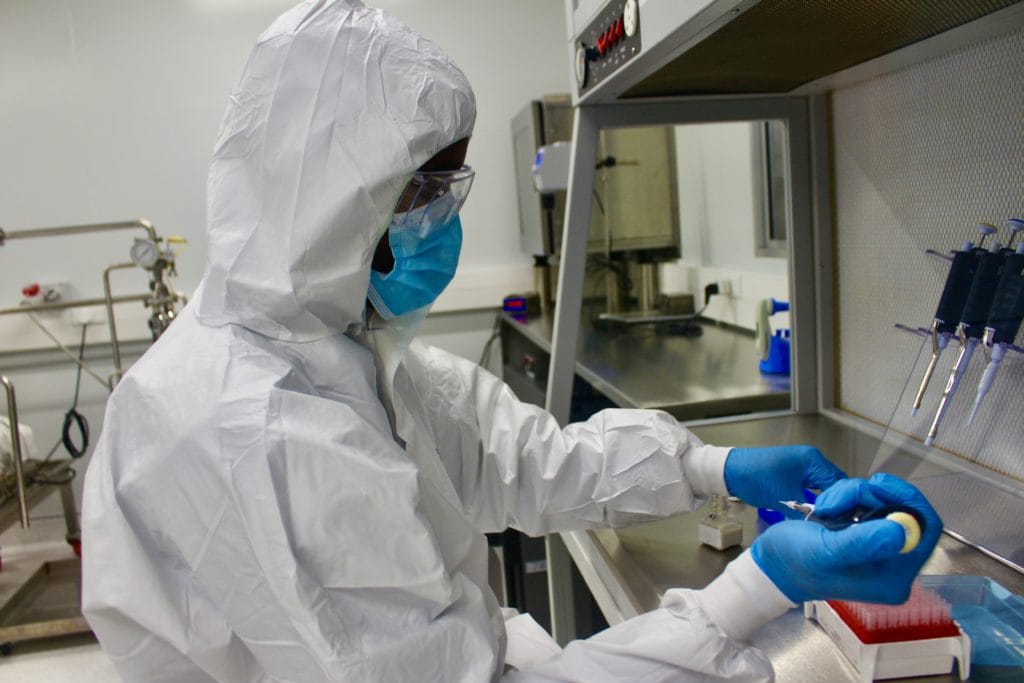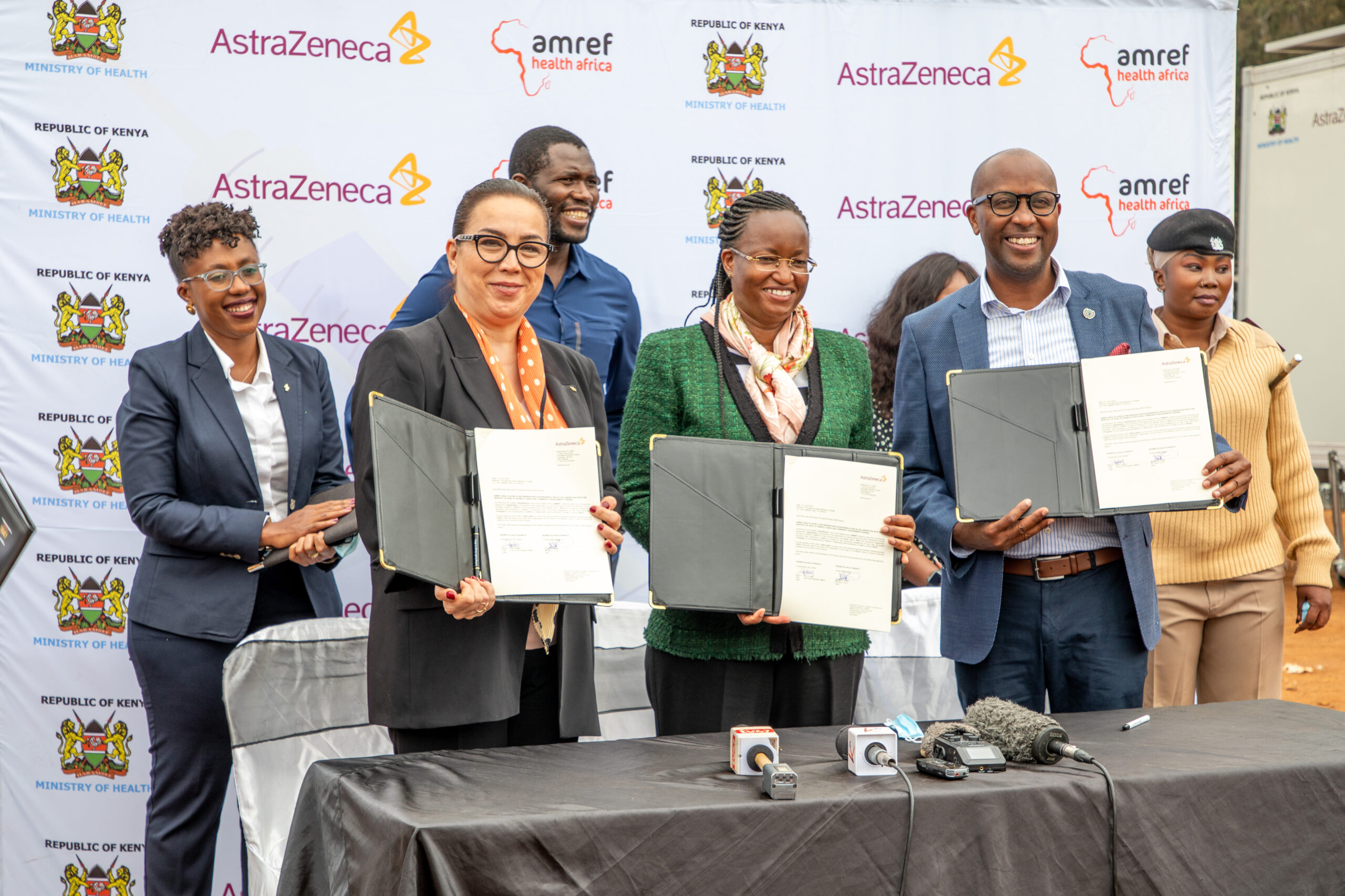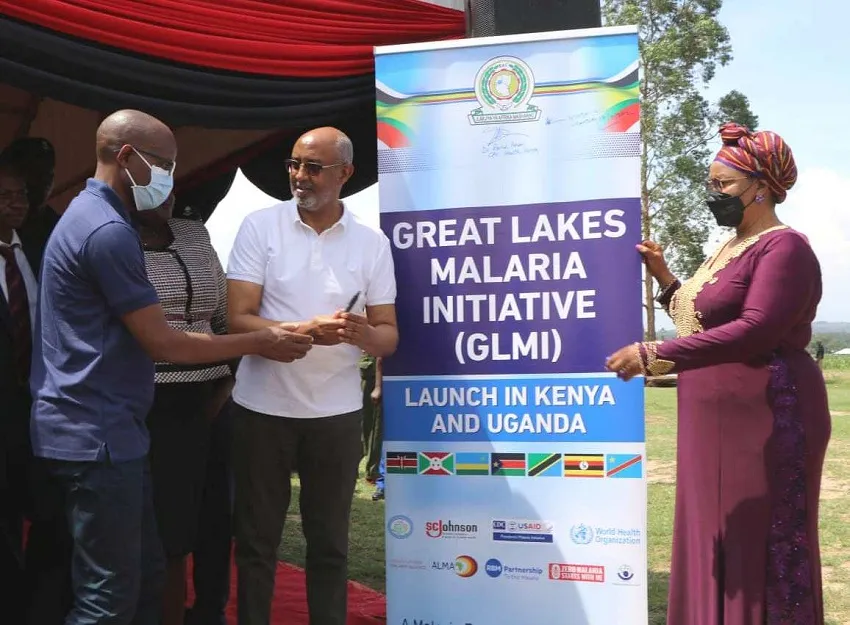Leading a Health Facility in Kibera Slums in Time of Crisis: Lydia’s Story
Monday, 11 May, 2020

When the first case of Coronavirus was reported in Kenya, the first priority of Amref Kibera Health Centre was to set up handwashing facilities at the entrance, train health workers and Community Health Workers (CHWs) as well as check every patient’s temperature, a standard protocol to monitor symptoms of the virus.
“We needed to act very fast because we are in an informal settlement serving thousands of residents and its environs,” says Lydia.
Lydia is a nurse and the medical officer running the Amref Kibera Health Centre as a Facility in Charge. Her leadership is crucial especially at this time of the utmost need and crisis.
The Health Centre is a static health facility that provides outpatient services to children and adults and a 24-hour inpatient maternity service.
The facility applies an integrated model, offering services that include outpatient services, child welfare services, antenatal and postnatal care, laboratory services, nutritional assessment and counselling, HIV testing and treatment, and maternity services, among others.
Her journey as a nurse serving Nairobi’s largest informal settlement started 13 years ago. “This is my calling. I love my profession because I impact people’s lives. That keeps me going,” she says. Stemming from her passion for serving humanity, she is confident the facility is doing its best to protect the frontline staff and patients.
“We are doing everything to make sure we prevent community spread and Community Health Workers (CHWs) are greatly helping us in this. It is not easy to navigate a new disease. We are learning every day,” says Lydia.
The health centre has placed handwashing facilities and hygiene suppliers at the gate and stocked alcohol-based sanitizers at all points of care rooms. Nevertheless, every patient’s temperature is checked before entering the premises. She hopes to get support so that she can set up tents outside the health facility to specifically screen for Coronavirus symptoms, as this will help them isolate suspected cases before entering the hospital.
“We know that the disease is spreading quickly and as of 27 April 2020, five of the national cases reported in Kenya by the Ministry of Health were from Kibera. Our goal is to reduce the risk of disease transmission at the facility while serving our patients,” she added.
Nevertheless, there are many challenges the facility faces considering it is located in an informal settlement. Lydia notes that health workers are at a greater risk of contracting the disease from infected patients.
“I am particularly concerned about ourselves as Health Workers in this facility. We need to serve the patients while maintaining our safety,” she says.
Lydia is hopeful that the cases identified in the country especially in the slums will not, at some point, overwhelm health systems, as this will give them a hard time preparing adequately because preparing an isolation room takes time and requires a lot of resources.
“In a day, we see about 150 patients and therefore we need to have adequate and effective supplies of Personal Protective Equipment (PPE). We do not want a situation where health workers withdraw from work because of lack of PPEs,” she says.
The good news is that the facility has one isolation room set aside for any suspected Coronavirus patient. However, the room does not have adequate supplies to handle a suspected case.
“We would like to have a complete set of supplies so that we can effectively handle a suspected case. We have a few PPEs, which are not the complete set. We need support now more than ever,” she says.
The informal settlement of Kibera is characterised by a population with low income and high levels of unemployment. The residents lack access to basic facilities, which include clean water supply, proper waste management, housing, and infrastructures.
“I am worried if people do not adhere to measures put in place, the community transmission might increase. We hope this will not happen but we also plan for any eventuality,” she observes.
Lydia attests that despite the challenges, the dedication of health workers in the facility keeps her going. “If we get help, we will protect ourselves and the thousands of people we serve. The safety of health workers and our communities remains our priority,” she concludes.
By: Maureen Cherongis, Media and External Relations Officer, Amref Health Africa







